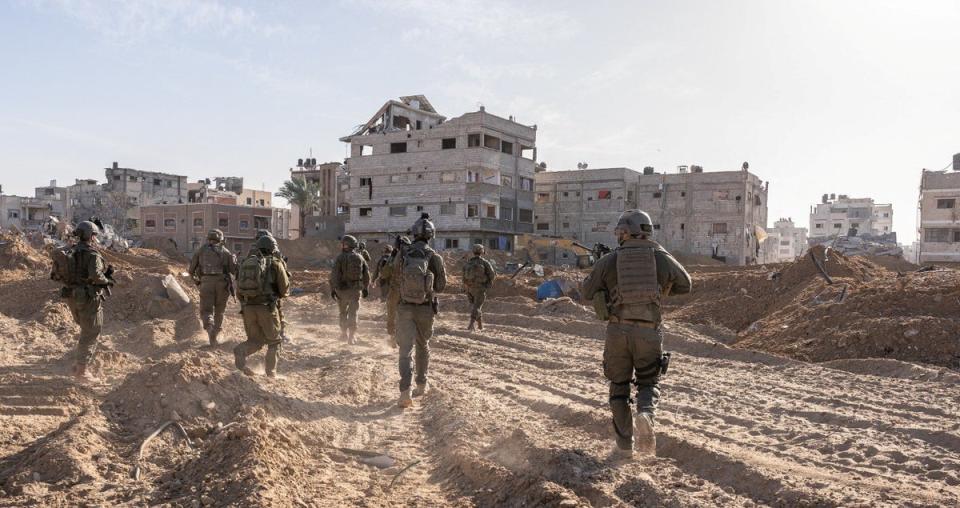'Unprecedented rise' in terrorism threat since Gaza conflict began, Metropolitan Police chief says

There has been an unprecedented rise in the threat of terrorism following the war in Gaza, the Metropolitan Police's assistant commissioner has warned.
Matt Jukes, who is Britain's most senior counter-terrorism officer, said the Israel-Hamas conflict has become a "radicalisation moment".
He told a briefing of journalists on Friday that there has been a 25 per cent increase in intelligence about potential terrorists - a higher spike than ever previously recorded.
Mr Jukes said: "In simple terms, that means more intelligence about potential terrorism and violent extremism, flowing through our systems than in recent years, from online reports, public reports and from MI5.
"If events happen around the world, they will invariably pull a thread in the UK, and particularly in its very diverse city communities, but what we have seen clearly is fear, anxiety, uncertainty, a whole range of very significant reactions amongst UK communities."

Mr Jukes has been in the role for two years, having previously served in Wales, and said that Islamic extremists have been "energised by this conflict".
"It's hard to remember a more unstable, dangerous and uncertain world. I have not seen the conditions collide in the way we have in the last months during my tenure," he said.
"The speed and the scale of the impact of global events are extraordinary, even in the context of our experience.”
Hamas attacked on October 7 causing Israel to declare war on the group - a conflict which has led up to 25,000 to die.
Thousands have gathered peacefully in London for rallies representing either side but Mr Jukes said there has also been unrest in the UK.

Since the Hamas attack, there have been 33 arrests for terrorism offences and seven people have been charged. Of those, 19 are related to protests, 13 to content on social media and one to an alleged physical attack.
Mr Jukes said the number of calls to the UK’s anti-terrorism hotline doubled in the two weeks after the initial attack.
He added: "We always see spikes after terrorist incidents but what we've seen since October 7 has been a spike which is higher and more sustained than ever before. This is playing out online in a way which is, in our experience, unprecedented.
"All of that online extremism is part of a dangerous climate. I think that puts us at a point which we would describe as a radicalisation moment."


